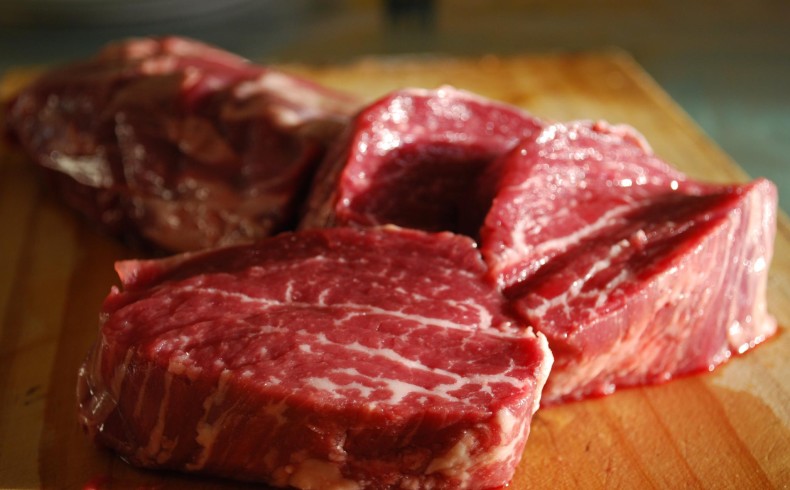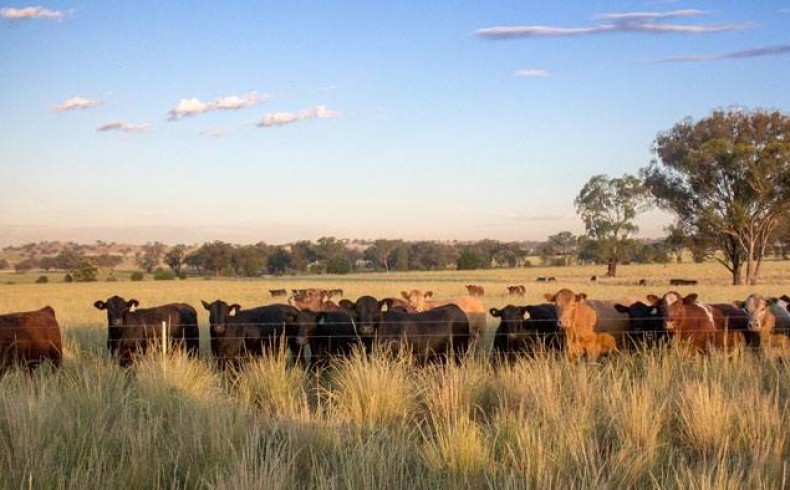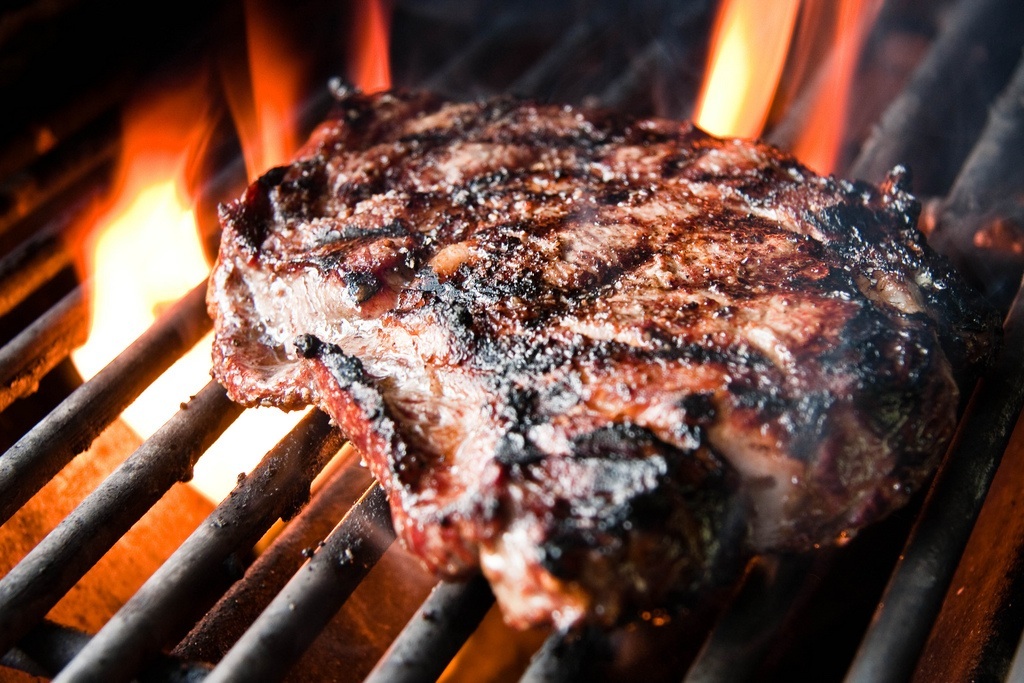
The age old debate over whether humans should eat red meat or not, has divided society for centuries. Whether you choose to eat red meat or not is a very personal decision. For some avoiding red meat is based on ethical and animal welfare reasons, for others it’s because they simply feel better on a meat free diet, whilst others swear they cannot function without it. The truth is, when it comes to the biochemistry of our bodies, we are all different. To a certain extent our bodies response to red meat is influenced by our blood type in addition to our microbiome – the bacteria that reside within our gut. The most important thing to consider when it comes to deciding whether or not to eat red meat, is to base your decision on how your body feels and functions, vs on a trend or what someone else maybe advocating because it works for them. Of course if your decision not to eat red meat is primarily based on ethical reasons – above and beyond how your body may feel, then my advice to vegetarians and vegans, is to supplement with adequate amounts of iron, vitamin C and B12 – in conjunction with a multi B complex, to make up for the nutrients contained in red meat, and ensure you are getting sufficient amounts of dietary protein by including a hemp seed or organic pea protein powder in your diet. Oh and be careful not to overdo the carbohydrates in an attempt to feel satiated!
But for those who might be sitting on the fence over the decision to eat red meat or not, here are some essential facts about red meat, that may assist in making an educated decision. From there, it’s best to allow your body to decide what’s best for you by tuning into how you feel when you eat red meat, or not. It may take a few months to gauge the true effect red meat is having on your health ( or not) and is heavily dependant on the function of your digestive system. I’ll explain more about why below.
Oh and by the way, for those of you who are interested, and because I get asked this question a lot – personally I do eat red meat – primarily 100% grass fed lamb, with a little kangaroo when I can get it, and occasional 100% grass fed beef. I tried going vego once, but being an O blood type and very prone to anemia, I find I function much better by including red meat in my diet, and I am also able to maintain my optimal weight more easily by doing so. I actually gained 4 kilos on a 100% raw food diet I experimented with once, because I was never felt satiated causing me to eat 2 – 3 times more than when I include animal protein in my diet, and I craved more sugar and I felt really tired, often wanting to sleep in the afternoon. In saying that I do incorporate raw foods into my diet and I limit my consumption of red meat to two – three times a week maximum, sometimes less and predominantly slow cooked. If I find my digestion isn’t on track, I cut back on the red meat until it’s sorted!
The facts on red meat
Nutritional Facts
A 100 gram (3.5 ounces) serve of raw ground beef contains
- Vitamin B3 (Niacin): 25% of the RDA.
- Vitamin B12 (Cobalamin): 37% of the RDA (this vitamin is unattainable from plant foods).
- Vitamin B6 (Pyridoxine): 18% of the RDA.
- Iron: 12% of the RDA (This is high quality heme-iron, which is absorbed much better than iron from plants).
- Zinc: 32% of the RDA.
- Selenium: 24% of the RDA.
- Omega-3 the fatty acids and CLA, along with Vitamins A and E
- 20 grams of quality animal protein
- Red meat, like all animal proteins is an acidic food
Improve your digestion
Red meat is the densest of all dietary proteins, making it an invaluable source of essential amino acids, which the human body requires for cellular growth and repair. But being the densest of dietary proteins also means it’s the most difficult for the human body to digest, and this is where red meat can become a problem for many people. Our stomach produces hydrochloric acid in order to digest our food, in particular animal proteins, but due to the fact that so many of us struggle to produce adequate levels of HCL, many of us are not digesting our food as well as we should, in particular – red and white meat. In the case of chronic constipation, I recommend eliminating red and white meat for at least 2 weeks, or until your bowel frequency increases to at least daily, and consider doing a gut repair and liver detox to improve your digestive function. It’s also important to avoid drinking water with meals, as this can dilute your HCL acid levels and impair digestion.
Know your body type
When it comes to certain nutritional ‘body types’, I’ve noticed in my 15 years of clinical practice, that the majority of A blood types thrive on a vegetarian, or pescatarian diet, compared to one including red meat, whilst O blood types, which evolved from cave men, tend to thrive on a diet that included animal proteins from 100% grass fed red meat and organic white meat, as long as their digestive function is healthy.
Know the story behind your meat

It’s essential to choose 100% grass fed red meat vs meat that has been exposed to a feedlot. Feedlot raised cattle are fed grains like soy and corn, (which are often genetically modified), as well as growth hormones and antibiotics – every thing your body and gut doesn’t need to stay healthy! The effect of synthetic hormones on the human body, is nothing short of dire, with links to cancer and conditions such as PCOS and endometriosis.
A study conducted by Harvard University in 2012 warned there is a “linear, step-wise increase in the risk of dying prematurely with higher red meat consumption”. However this study failed to divulge that it was based on the consumption of feedlot reared beef that were grain-fed on GMO corn and soy, and given antibiotics and hormones, and jammed into befouled industrial feedlots – a far cry from the healthy variety of 100% grass fed cattle, that are hormone and antibiotic free.
The truth is, if you are consuming feed-lot reared beef, you are at risk of developing illnesses and diseases associated with antibiotics, hormones and toxins. However these issues do not exist with the consumption of 100% pasture-fed-to-finish meat. What’s really astounding is that the majority of antibiotics sold in America for instance, are consumed by feedlot animals! The reason why they are administered so many antibiotics is because of the increased risk of diseases associated cattle reared in feedlots and the consumption of a diet they are not designed to eat – corn and soy! Both antibiotics and grains also increase the rate of weight gain, which is a more profitable way to breed cattle. Just remember cattle are meant to eat grass not grains, and if they fatten up on grains and antibiotics, so will we!
The healthiest way to eat red meat
Slow cooking meat in a crock pot for 4 – 8 hrs on low heat, not only preserves the nutrients but also tenderizes the it, making it a lot easier to digest. Meat (or any animal protein) cooked on the open flame of your BBQ may taste delicious, but cooking meat this way, causes the formation of carcinogens. If you marinate your meat in garlic, red wine, lemon juice or olive oil, it can significantly reduce the carcinogenic chemicals formed in red red meat when it is cooked at high temperatures.

Avoid all processed meats – these are typically cured with nitrates – chemical compounds which have been identified as carcinogens. Processed meats include those that have been artificially cured, like ham, bacon, hot dogs, salami and pastrami. So if you really love your bacon, go for the naturally smoked variety, produced from free range pork. In a massive review of 20 studies that included a total of 1,218,380 individuals, processed meat was associated with an increased risk of cardiovascular disease and diabetes. However, no association was found for unprocessed red meat.
The take home message when it comes to eating red meat, is to base your decision on your body type and the state of your digestive function. If you choose to eat red meat, it should be unprocessed, 100% grass fed and free of any chemicals and consumed no more than 2 -3 x’s a week, preferably slow cooked, or if you want to enjoy some BBQ’d steak, try to limit it to no more than 20% of your meat consumption and 80 – 90% of the time consume your red meat slow cooked or casseroled.
If you are suffering from cancer or a chronic illness, I recommend you avoid all meat in order to assist with achieving the optimal pH and until your bowel frequency and your liver function have optimized.
Copyright Sally Joseph 2015 All Rights Reserved
Health & Lifestyle Tips
Delicious Healthy Recipes
Educational & Recipe Videos








